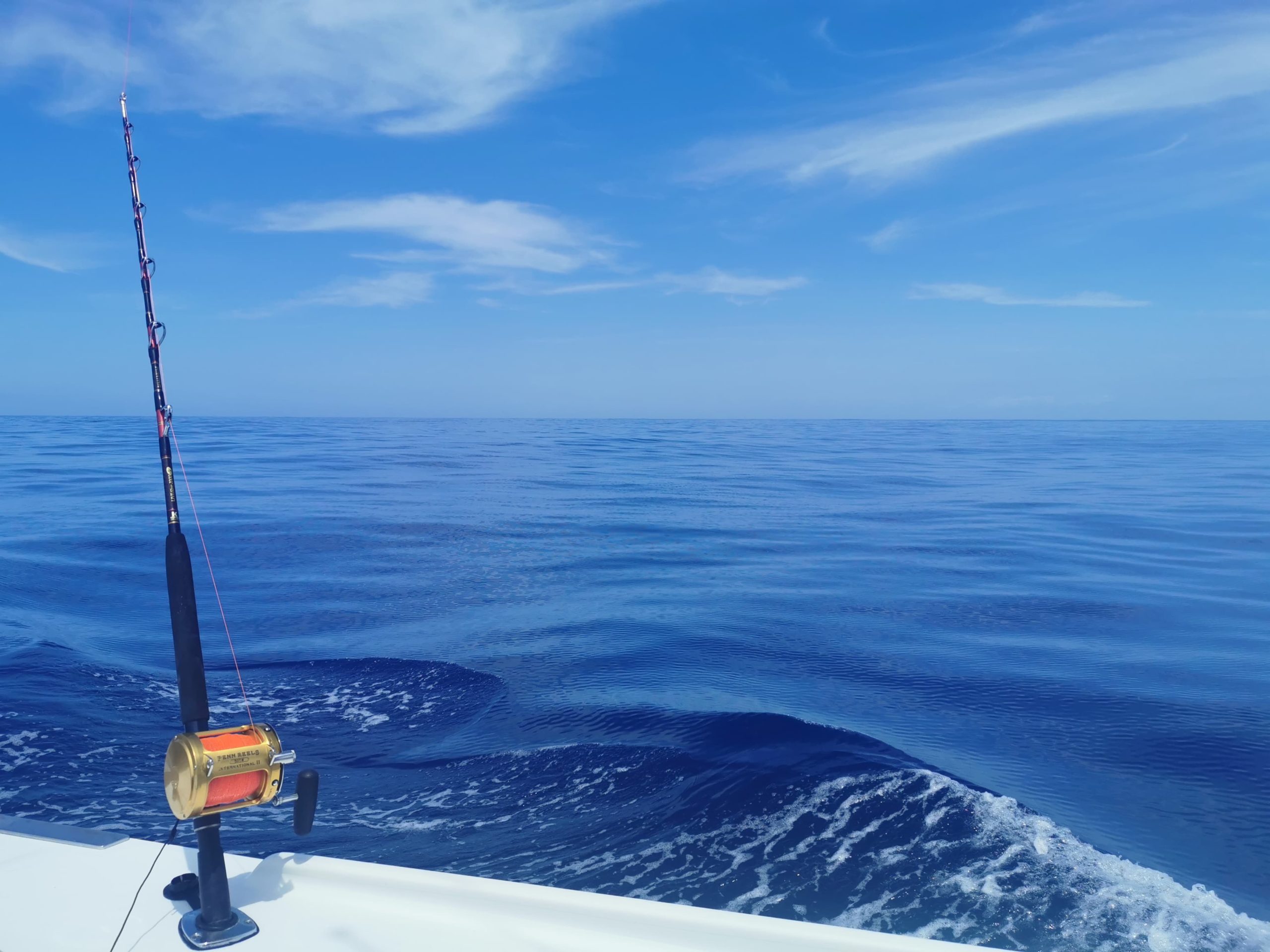FAQs
All FAQs |
Customary Fisheries | Fisheries Management | maximum sustainable yield | QMS | Economics | Fishing | Rescue Fish | Environment | Fishing methods | Recreational Fishing | Fishcare | customary | Kahawai | Reform scam | Baitfish | Scallops | Crayfish | WRC decision | Marlin | Reef fish | Deemed value penalties
April 13, 2023
In March 2023 Stuart Nash, the Minister for Oceans and Fisheries, closed the Coromandel scallop fishery to commercial and recreational harvest. This closure was made under section 11 of the Fisheries Act 1996. The fishery remains open to Māori customary harvest. There has been a strong reaction to this decision so we asked Fisheries New ... Read more.
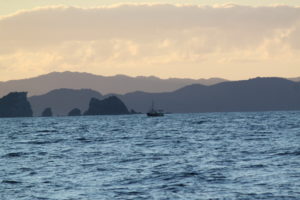 July 24, 2021
B50 means a more resilient ocean through more fish and increased biodiversity. More fish in the water means fish stocks have well-balanced age structures in their populations and a more productive marine ecosystem that can support other creatures such as marine mammals, seabirds, and sharks. In measuring fish population size for a fish stock, Fisheries ... Read more.
July 24, 2021
B50 means a more resilient ocean through more fish and increased biodiversity. More fish in the water means fish stocks have well-balanced age structures in their populations and a more productive marine ecosystem that can support other creatures such as marine mammals, seabirds, and sharks. In measuring fish population size for a fish stock, Fisheries ... Read more.
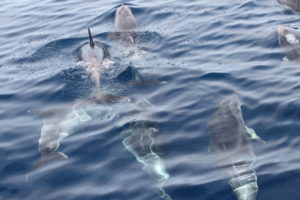 July 24, 2021
B50 can be further explained as fish population sizes should be at a minimum at 50% of the size that the original fish population was, before large-scale fishing began. B50 means more fish in New Zealand waters. More fish means more biodiversity through increased fish abundance. More biodiversity creates ecological resilience to fight environmental issues ... Read more.
July 24, 2021
B50 can be further explained as fish population sizes should be at a minimum at 50% of the size that the original fish population was, before large-scale fishing began. B50 means more fish in New Zealand waters. More fish means more biodiversity through increased fish abundance. More biodiversity creates ecological resilience to fight environmental issues ... Read more.
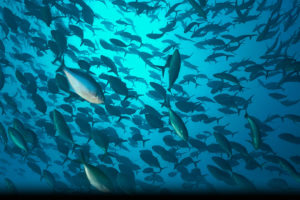 July 24, 2021
B50 describes a fish population at 50% of its estimated original stock size (biomass). Biomass is an estimate of the total quantity of fish in a given area. If a fish stock is estimated to be at B50 that means that there is around half the amount of fish in a given area compared to ... Read more.
July 24, 2021
New Zealand uses different biomass levels to measure stock status when carrying out a fish stock assessment. Two biomass levels are used, the spawning stock biomass, and the initial biomass (B0).The spawning stock biomass and the initial biomass are compared as a percentage to indicate overall fish stock status. The spawning stock biomass is the ... Read more.
July 24, 2021
B50 describes a fish population at 50% of its estimated original stock size (biomass). Biomass is an estimate of the total quantity of fish in a given area. If a fish stock is estimated to be at B50 that means that there is around half the amount of fish in a given area compared to ... Read more.
July 24, 2021
New Zealand uses different biomass levels to measure stock status when carrying out a fish stock assessment. Two biomass levels are used, the spawning stock biomass, and the initial biomass (B0).The spawning stock biomass and the initial biomass are compared as a percentage to indicate overall fish stock status. The spawning stock biomass is the ... Read more.
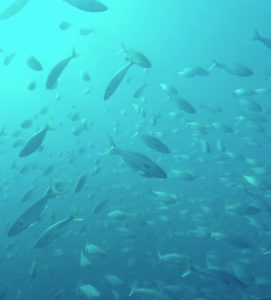 July 24, 2021
In fisheries, biomass is an estimate of the total quantity of fish in a given area. Biomass can be expressed in different ways, depending on what you are trying to measure. For example, biomass can be an estimate of the number of fish able to breed, or biomass can be expressed as the estimated ... Read more.
July 24, 2021
In fisheries, biomass is an estimate of the total quantity of fish in a given area. Biomass can be expressed in different ways, depending on what you are trying to measure. For example, biomass can be an estimate of the number of fish able to breed, or biomass can be expressed as the estimated ... Read more.
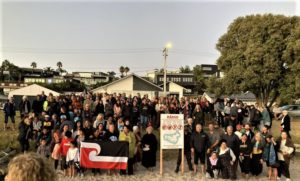 April 28, 2021
A rāhui is an indigenous, Māori principle used to regulate human activity for the future well-being of the people and natural resources such as fisheries. ‘Rāhui’ translates ‘to prohibit, or a prohibition’. It is used in the form of restriction/ prohibition of a resource, area, or activity. In fisheries it is used to ban harvesting ... Read more.
April 28, 2021
A rāhui is an indigenous, Māori principle used to regulate human activity for the future well-being of the people and natural resources such as fisheries. ‘Rāhui’ translates ‘to prohibit, or a prohibition’. It is used in the form of restriction/ prohibition of a resource, area, or activity. In fisheries it is used to ban harvesting ... Read more.
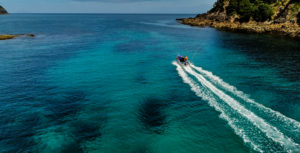 January 11, 2021
A common thread over summer is that recreational fishers ought to release big snapper during spawning season because big fish are the best breeders. The ‘Put our breeders back’ argument is partially true – Bigger snapper can produce more eggs in a season, but it doesn’t mean all big snapper need to be released. If ... Read more.
November 2, 2020
Embarrassment. In 2014 fisheries officials discussed the merits of releasing or not releasing damning evidence of illegal and wasteful practices by commercial fishers. They discussed the potential backlash if the evidence was withheld by the Ministry and later discovered and made public. The 2016 report by Michael Heron QC details this discussion in relation to ... Read more.
November 2, 2020
Because there is a lack of available research funding. The system is set up so that quota holders have a major influence on where the research funding is spent. This means that research funding is targeted towards fish stocks that may deliver greater catch limits, not necessarily the fish stocks that are depleted (in trouble) ... Read more.
January 11, 2021
A common thread over summer is that recreational fishers ought to release big snapper during spawning season because big fish are the best breeders. The ‘Put our breeders back’ argument is partially true – Bigger snapper can produce more eggs in a season, but it doesn’t mean all big snapper need to be released. If ... Read more.
November 2, 2020
Embarrassment. In 2014 fisheries officials discussed the merits of releasing or not releasing damning evidence of illegal and wasteful practices by commercial fishers. They discussed the potential backlash if the evidence was withheld by the Ministry and later discovered and made public. The 2016 report by Michael Heron QC details this discussion in relation to ... Read more.
November 2, 2020
Because there is a lack of available research funding. The system is set up so that quota holders have a major influence on where the research funding is spent. This means that research funding is targeted towards fish stocks that may deliver greater catch limits, not necessarily the fish stocks that are depleted (in trouble) ... Read more.






